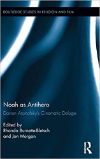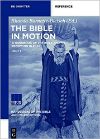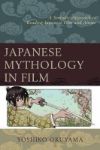- Author(s): Wojciech Kosior
- When: 2016-10
- Where: Journal of Religion & Film
A swift survey of Noah reviews clearly shows that the audience’s sensitivity was challenged in several regards; Noah was portrayed as a “religious extremist” and “borderline psychopath”, the Creator proved to be a “distant—unaware or uncaring—overseer”, while Aronofsky himself was said to have a “sinister purpose of leading people to believe that Christianity and Judaism are something they are not.” On closer examination, however, the above summarized pleas are not entirely relevant for two basic reasons. First, the movie consists of ideas that have been in use since antiquity, rearranged and composed into a new-old story and all the arguments directed against Noah could be very well addressed to the Bible, Dead Sea Scrolls or Rabbinic midrashim. Second, the movie presents more often than not a “censored” version of the stories furnished by the classical literature itself and the classical variants are far more disturbing. The main purposes of the present paper are (1) to reconstruct several of such “censored” threads from Noah that play with the motive of love; (2) to juxtapose them with their equivalents transmitted in the classical sources; (3) to show that had Aronofsky and Handel followed the ancient texts more strictly, they would have produced a far more controversial and unsettling picture; (4) to discuss the possible sources of the controversies evoked by the movie.









